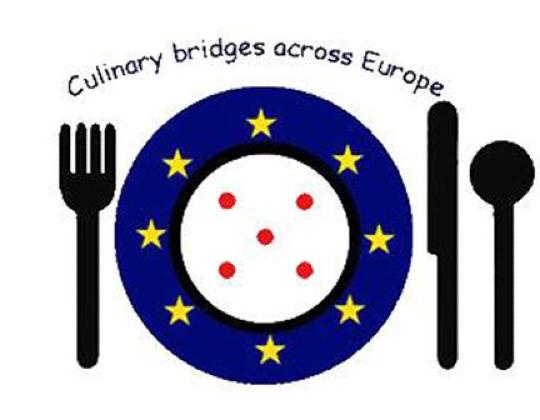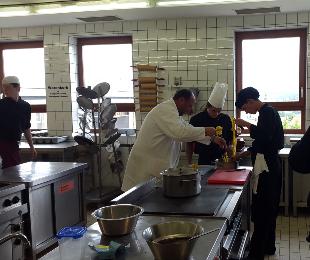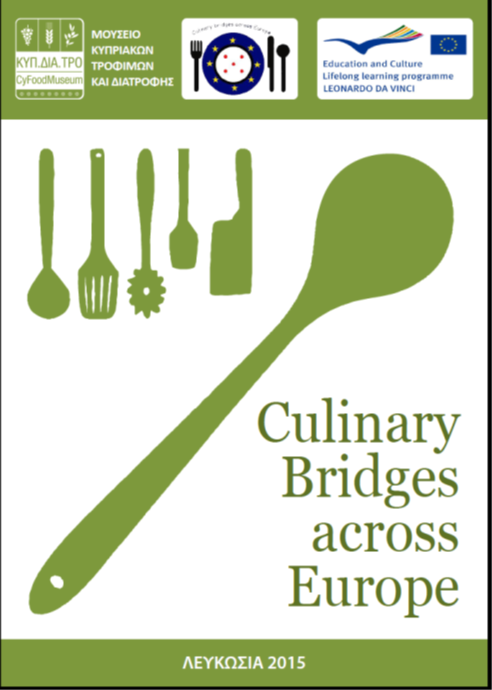Skills Development Program for Unemployed Individuals in the Food Service Sector
Leonardo da Vinci Partnerships / CY-LdV-MULPART-2013-15


About the Project
The project involved 7 partners from 5 countries and aimed to showcase the traditional cuisine of the partner countries through exchange visits, presentations, tours of production and distribution sites of traditional products and dishes, as well as visits to restaurants for product tastings. The project culminated in the creation of an electronic cookbook.
Project Objectives
- To promote the European dimension in lifelong learning through transnational cooperation, with a particular focus on the vocational education and training of individuals working or intending to work in the food service and hospitality sector.
- To help students discover the culinary arts, everyday life, and working conditions in other European countries. The project also aims to create a collection of national or local dishes, teach them to the participants, and include them on the project’s website, making them accessible to everyone (translated into the partner languages).
- To teach the basic principles of computer use in a practical manner, and indirectly promote foreign language learning in a multicultural environment.
- To assist students in improving their internet skills with the goal of finding employment opportunities across Europe.
- To emphasize the importance of intercultural communication in Europe, fostering an understanding of different ways of thinking and perceiving among people from diverse backgrounds. To raise awareness among students about the shared European cultural heritage.
- To provide students with new opportunities to enhance their knowledge, expand their skills, travel to other European countries, meet new people, and engage with different lifestyles.
- To motivate individuals with low educational backgrounds. To support the integration of migrants attending our courses into the learning environment and broader community.
- To establish collaborative relationships with institutions involved in vocational education and training in the hospitality sector. To help hospitality professionals create networks with colleagues in other European countries.
- To raise awareness among social partners about the challenges faced by workers in these sectors and to encourage efforts to address and reduce these issues.
- To help project partners broaden their knowledge and experience by exchanging ideas and examples of best practices.
- To offer colleagues from different cultural backgrounds the opportunity to share experiences and successful practices.
The Role of the Cyprus Food and Nutrition Museum
As part of the program, in March 2014, the Cyprus Food and Nutrition Museum (CFNM) undertook the planning and implementation of activities to host partners from Greece, Germany, Italy, and Poland.
To introduce the partners to Cypriot gastronomic traditions, the CFNM organized a series of seminars, workshops, and gastronomic tours (see: http://www.paskedi.cc/dissemination).
During the period of May–June 2015, the CFNM worked on the production of the electronic cookbook.
This cookbook, which consists of 64 pages in total, includes recipes from all partner countries, translated into the Greek language.
The aim of the book is to familiarize Greek-speaking audiences with the culinary heritage and traditions of other European countries—particularly relevant given the mobility of people within the EU in search of employment.
